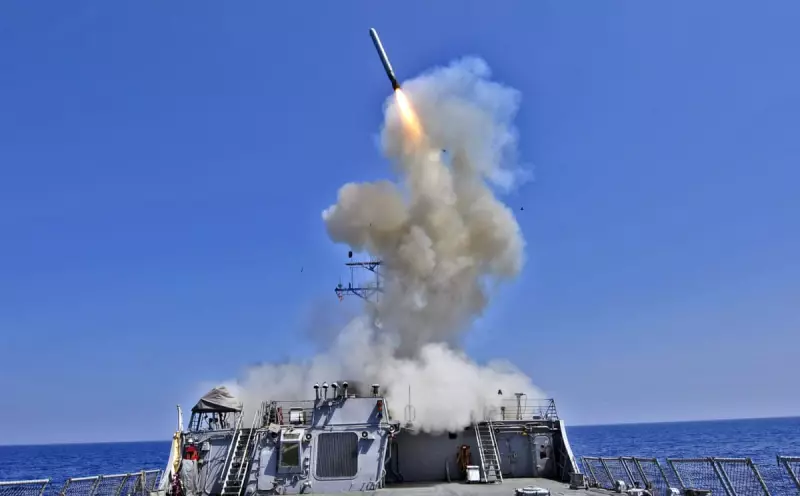
The Russian government has voiced what officials are calling 'extreme concern' following alarming signals from Donald Trump's camp about potentially greenlighting the delivery of advanced Tomahawk cruise missiles to Ukrainian forces.
This development represents what could be the most significant escalation in American military support for Kyiv since the conflict began, sending shockwaves through diplomatic channels in Moscow and European capitals alike.
Kremlin's Alarm Bells Ringing
According to intelligence sources, Moscow has communicated its apprehension through multiple diplomatic backchannels, warning that such a move would cross what the Kremlin considers 'red lines' in the ongoing conflict. The Tomahawk missile system, with its precision strike capability and significant range, would substantially enhance Ukraine's ability to target Russian positions deep behind front lines.
Russian defence analysts have reportedly been scrambling to assess the potential battlefield impact, with one Moscow-based military expert describing the possible deployment as 'a game-changer that could alter the entire strategic calculus.'
Trump's Shifting Stance Sends Shockwaves
The former US president's apparent willingness to provide these sophisticated weapons marks a dramatic departure from his previous rhetoric about seeking a quick negotiated settlement. During recent private discussions with European leaders, Trump representatives have suggested that strengthening Ukraine's military position might actually accelerate peace talks by forcing Moscow to the bargaining table.
This new posture has created both anticipation and anxiety among NATO allies, with some welcoming the potential boost to Ukraine's capabilities while others fear it might provoke unpredictable Russian responses.
Military Implications and Global Reactions
The potential deployment of Tomahawks raises several critical questions:
- How quickly could Ukrainian forces be trained to operate these complex systems?
- What specific Russian assets would become vulnerable to precision strikes?
- How might Moscow retaliate militarily or economically?
- Would other NATO members follow suit with similar weapons transfers?
European defence ministers are scheduled to hold emergency consultations later this week to coordinate their response to what many are calling the most dangerous moment in East-West relations since the Cold War.
The coming days will reveal whether Trump's missile threat represents genuine policy or strategic posturing, but one thing is certain: the stakes in Ukraine have just been raised dramatically.





